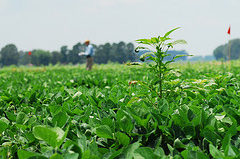Soy Growers Most Implemented Sustainable Practice is Crop Rotation
Soybean growers use a variety of sustainable farming practices, and a recent survey from USB showed that four out of five are implementing at least five different sustainable practices in their farm operation. The most used sustainable practice was crop rotation, with 93% of farmers responding they reporting they do so. Nutrient management and reduced…
Details







